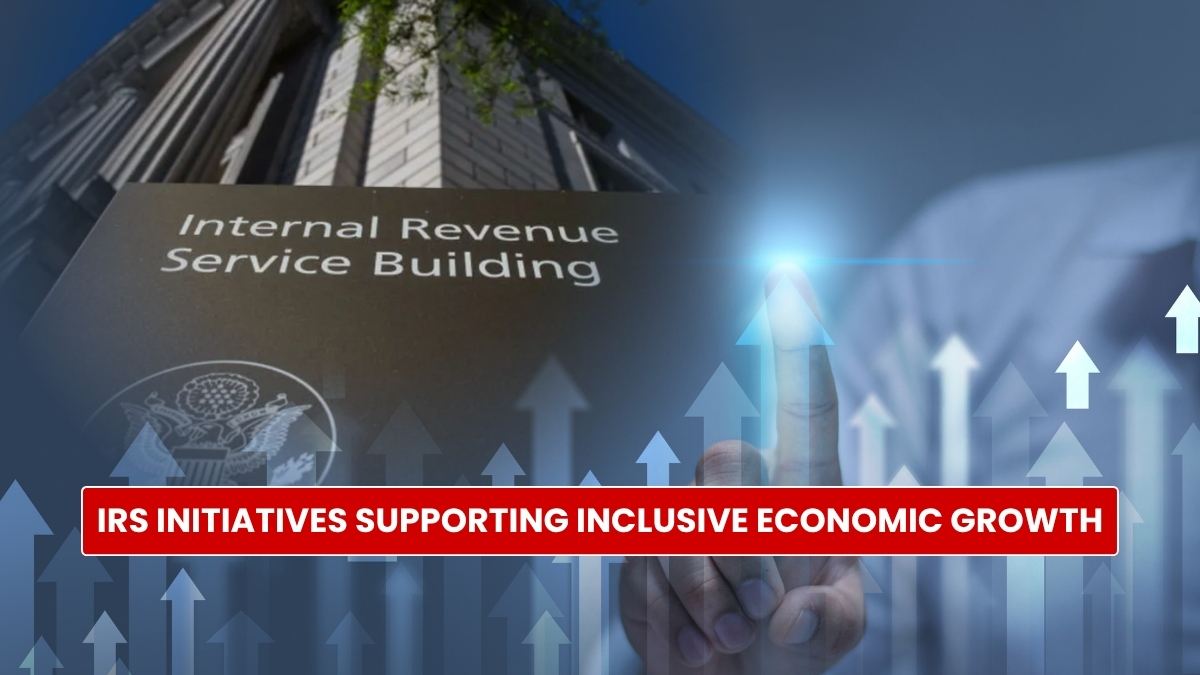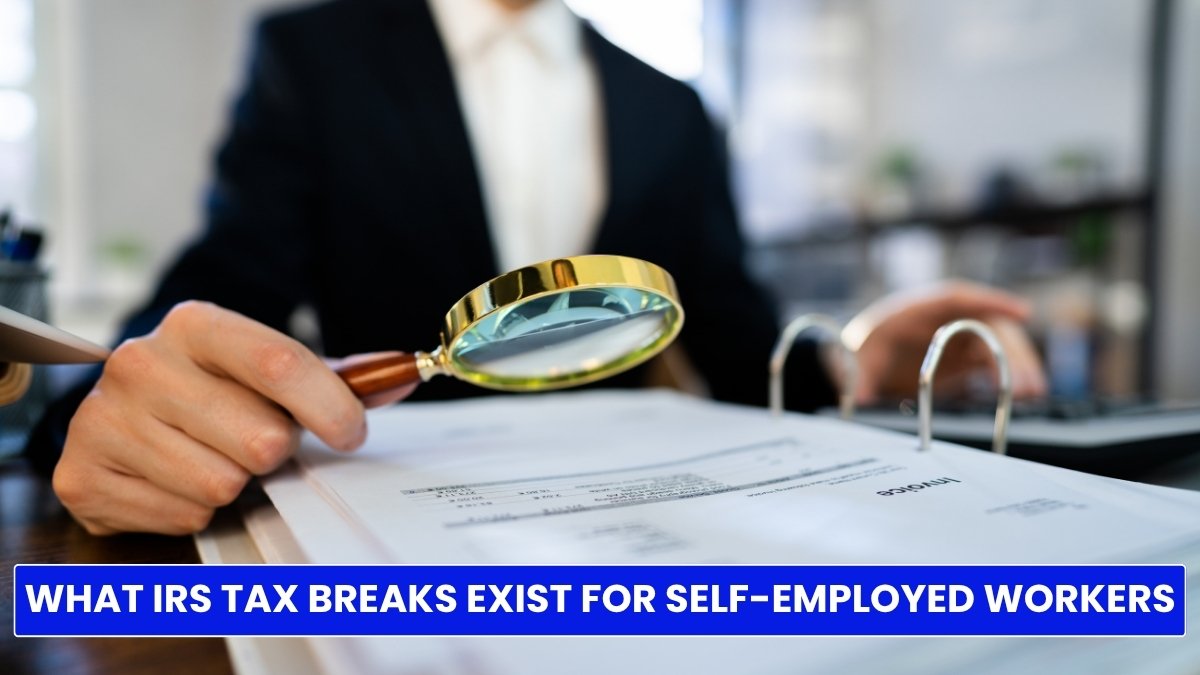The tax system is an inevitable part of the national economy that contributes to the nation’s economic growth. The IRS has been playing its part since its establishment and has taken initiatives to enhance the system. You can find IRS initiatives or efforts to boost the economy here.
The IRS enforces the new tax laws under the One Big Beautiful Bill and other provisions, takes initiatives to ensure the benefits reach all the eligible people, and encourages more people to complete their tax liability.
The IRS plans to expand tax filing tools, focus on underserved communities, improve taxpayer service, and offer tax incentives that will encourage people’s participation. Tax revenue is the major source of government initiatives and programs.
What are the IRS initiatives supporting inclusive economic growth in 2025?
With the next tax year coming in two to three months, the IRS has taken some initiatives to improve the tax system’s efficiency and collect more tax, such as:
- Direct File Expansion:
- The IRS has opened the Direct File for 25 US states in the tax year 2024 to report income, deductions, and credits.
- After the pilot program, the agency has expanded the IRS Direct File this year. For the next year, the agency can expand the Direct File option to other states.
- In the direct file, you can file your federal taxes online for free and without any problem.
- Zero Paper Initiative:
- The IRS started the zero-paper initiatives to fight scams and reduce the cost of storing documents. According to the IRS, the agency has more than 1 billion documents, and it costs them $40 million each year to store them.
- The IRS has made many tax forms available online, and by the filing season of 2025, the agency plans to add more than 150 forms to e-file.
- This will lead the agency to enable over 76 million documents to proceed digitally, saving more money.
- Modernizing the system:
- IRS has taken steps to digitalize the tax system through various initiatives, such as the Direct File program, refund tracking, Clean Energy Credit registartion, and many more.
- Volunteer Income Tax Assistance:
- The IRS is determined to simplify the tax system for the taxpayers and encourage more participation in taxes. The agency has advanced the VITA and TCE for seniors to support the taxpayers who need assistance.
- Combat with fraud:
- Frauds and scams can disrupt the economy; hence, the IRS has taken steps to mitigate the fraudulent activities.
- The agency is seeking funding from the Inflation Reduction Act and improving the agency to combat fraud and enforce tax provisions to offer better tax service to taxpayers.
What are the notable tax incentives and benefits changes for the taxpayers?
Since we are talking about IRS initiatives for economic growth, we cannot miss the tax benefits, such as credits and deductions, that will help the taxpayers. Let’s understand the major tax provision changes under the OBBA that will benefit the taxpayers in the coming tax season:
- New Deduction:
- The standard deduction has increased to $35,300 for married couples from $31,500, $16,1000 from $15750 for single/married filing separately, and $24,150 from $23625 for heads of households.
- No tax provisions:
- The government has announced no tax on tips, car loan interest, and overtime in the new provision; the IRS will enforce this for the next tax season.
- The self-employed individuals and employees can claim a deduction of up to $25,000 on tips when they meet a certain income limit.
- Deduction for seniors:
- The government announced a deduction of up to $6000 or $1200 for a married couple for seniors aged 65 or above.
- New Clean Vehicle Credit:
- The government has announced a new clean vehicle credit, or qualified Commercial Clean Vehicle Credit, for vehicles acquired after 30 September 2025.
- Opportunity Zones enhancement:
- Taxpayers who invest in Qualified Opportunity Zones receive certain tax benefits.
- The government has modified the threshold for rural areas, as it is defined as a population over 50,000, an urbanized area next to a city or town, for all states, US territories, and DC.
- Investors can also unlock the benefits with an investment of 50% of the value of the property.
How will the IRS initiative impact economic growth?
IRS initiative will bring many changes to the tax system, ultimately impacting the economic growth in the following ways:
- With the tax credits and deductions, the agency will put more money into the pockets of the taxpayers, boosting their purchasing power.
- With the Direct File and taxpayer assistance, the agency is promoting e-filing and enabling more tax collection, as people will participate more and support economic growth.
- With the QOZ’s updates, the agency will support millions of people in rural areas as it will attract more investment, bringing more employment, real estate development, and many more.
- The IRS is taking the initiative to fight the fraudulent activities and make the system safer and more efficient for taxpayers.
- The agency has taken steps to digitize the system, reduce errors, save time in reviewing, enforcement of the tax laws, and process faster refunds.
What are the challenges the IRS faces in contributing to economic growth?
With the IRS’s steps to contribute towards the nation’s economy and provide better tax services to the taxpayers, let’s see what challenges the agency faces in achieving them:
- Funding Cut: The agency has received funds under the IRS for the transformation of the system to make the system more modern, improve customer service, and perform other tasks. However, the funding was cut as Congress took back $21.6 billion, leaving $57.8 billion for the IRS.
- Tax Law changes: With the changing tax laws, the IRS would have to take steps to inform, enact, and include the changes for the next tax season, which will involve a lot of challenges.
- Taxpayer Data and Resources: The IRS consists vast amount of data, especially sensitive data, with most of the things being in digital space, which makes them vulnerable to cyber attacks; hence, the major challenge is to keep the data protected.
- Tax Fraud: The tax fraud in tax credits and other benefits is costing the agency a lot; hence, they need to deal with this first.
The IRS has taken steps to improve the tax system, making it effective to boost economic growth, help people, and provide the best for citizens.





